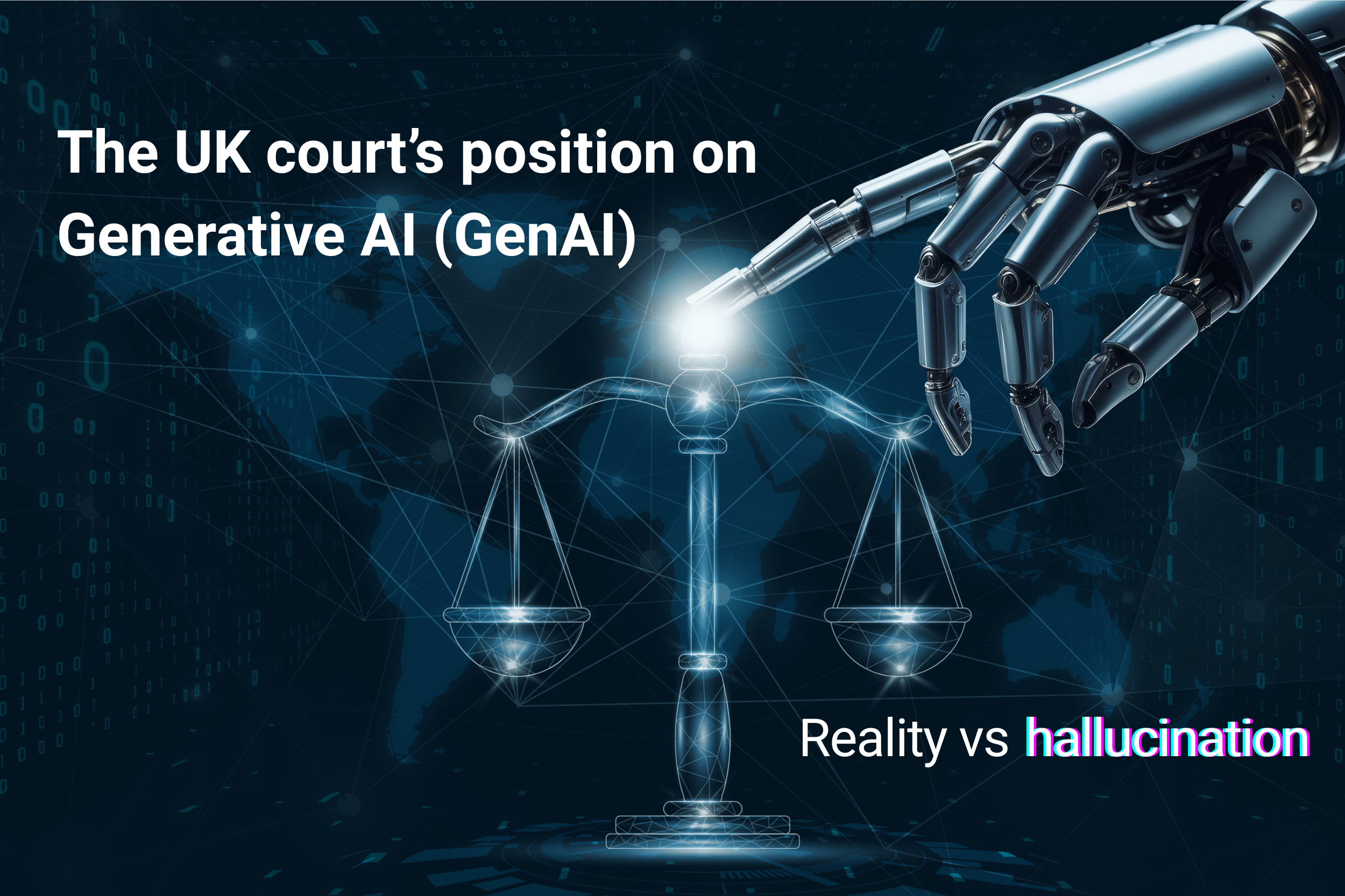
Reality vs hallucination
Cambridge dictionary’s word of the year for 2023 is “hallucinate”. You may think that hallucination is something only humans do, but in this context, it refers to the mistakes made by computers - specifically large language models (LLMs) – which can generate completely false answers, often supported by fictitious citations.
What is the legislative and case law position on GenAI?
The UK government’s 2023 White Paper introduced five core principles for the deployment of safe and ethical AI. In March 2025, a revised Artificial Intelligence (Regulation) Bill was reintroduced in the House of Lords. However, as it currently stands, the interpretation and application of the AI principles are left to individual sectors and their regulators.
Closer to home, the Ministry of Justice and the UK Jurisdiction Taskforce are working on a statement to clarify how the laws of England and Wales regard AI-related harms and liability.
On the judiciary side, there is currently no definitive UK case law regarding the use of generative AI in dispute resolution.
The use of GenAI in dispute resolution
eDiscovery providers have increasingly used GenAI to interrogate large data sets, create reports on given issues or summarise key documents. GenAI is also useful in investigations helping clients discover issues they were not initially aware of, assess the legitimacy of claims, and evaluate whether to proceed with disclosure or settlement.
In the absence of specific court guidance, we utilise GenAI on a case-by-case basis. Until legislation and case law establish clear frameworks for its application, it is the duty of ediscovery professionals to clearly communicate the benefits and limitations of these tools, enabling clients to make informed decisions.
Despite the regulatory challenges, providers can implement measure to address situations where LLMs are prone to hallucination and generating false answers:
- Human Judgement Remains Essential. GenAI is a tool to assist, not replace, human decision-making. Project managers focus on understanding and managing their limitations, informing our clients, and ensuring careful and responsible use.
- Quality Assurance Processes. Learning from the courts’ acceptance and validation of the technology-assisted review in 2016, the emphasis is on establishing a robust and defensible process rather than relying on the technology itself. We anticipate that the same approach will apply to GenAI.
In summary, as legislation and case law regarding GenAI continue to develop, eDiscovery professionals play a key role in creating workflows and quality assurance practices that will naturally influence industry standards and court acceptance.
If you would like insights on how GenAI could be used in your case, please do not hesitate to contact us.
Sources:
- Cambridge Dictionary: https://www.cambridge.org/news-and-insights/hallucinate-is-cambridge-word-of-the-year-2023
- UK Government, DIST: https://www.gov.uk/government/consultations/ai-regulation-a-pro-innovation-approach-policy-proposals/outcome/a-pro-innovation-approach-to-ai-regulation-government-response
- UK Parliament, Artificial Intelligence (Regulation) Bill: https://bills.parliament.uk/bills/3942